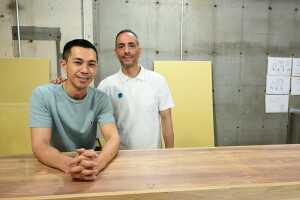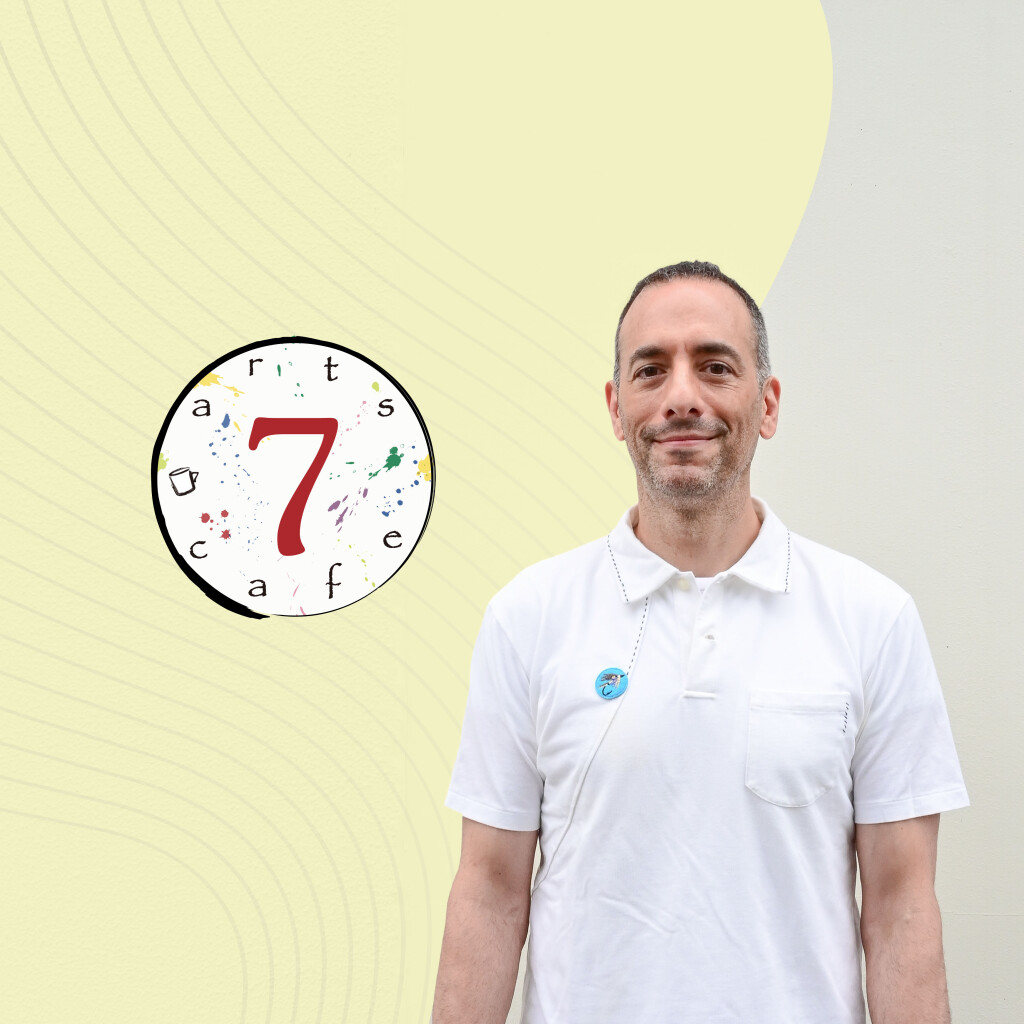Imagine for a moment a Yokohama museum of living culture–not a place where objects and artifacts are displayed, but a dynamic space where Yokohama can celebrate scholars and artists in the moment, whether they be musicians, dancers, poets or some other kind of rare talent. Imagine a community space where visitors can be educated and entertained while also enjoying good food and drink inspired by Yokohama’s rich history as a gateway to the West. This vision is the driving force behind Joseph Amato’s 7artscafe. And if anyone can pull off the creation of such an institution, it’s Amato.
Many in Yokohama’s international community already know Amato. He has been running the Japan Culture Program (formerly called the International Center for Japanese Culture, or ICJC) through the Yokohama International School (YIS) since 2011. This enrichment program has introduced students and the wider community alike to traditional Japanese culture and arts through lessons, lectures, workshops and performances. Curriculum includes Japanese language, tea ceremony, calligraphy, dance, history, film, architecture, ikebana (flower arrangement), kimono design, koto, shamisen, taiko and literary arts. This ten-year stretch of success, however, has been the runway for something potentially much larger.

Before that, how did Amato get here? Born and raised in Philadelphia, Pennsylvania (USA), Amato attended nearby Rowan University before pursuing a Masters and PhD in music composition at New York University. In 1995, finished with his graduate coursework, Amato says, “I took a six-month study tour of world music, traveling to Egypt, India, Myanmar, China, and Southeast Asia. Japan was my last stop. Here, I fell in love with the image and sound of the koto. I thought I’d just take a job and found one at the Fukuoka International School.” While teaching for two years, Amato immersed himself in learning the koto.
After a brief stint back in America to finish the requirements for his PhD, Amato secured a job teaching at a Heidelberg University program in Sapporo (now-defunct) and continued his koto lessons. Shortly thereafter, in 2000, Amato won the Japanese Government Bunka-cho scholarship to study koto full-time in Tokyo at Seiha Hougaku-kai. After earning his degree in koto, he then got a job at YIS in 2003 to launch their koto program.

The program was such a success that Amato had to hire assistant teachers. He still wanted to do more and launched ICJC. This program, too, flourished. But in 2017 he was at a quiet crossroads. “I wanted to go even bigger,” says Amato, “so I started an NPO.”
Amato was determined to build his international network and found a wide-reaching Japanese cultural program open to the public, much like similar centers at Stanford and the University of California, Berkeley. Thus Amato’s Japanese Culture Promotion and Management (JCPM) endeavor began.
“I work very closely with Toshiba International Foundation (TIFO). They’ve been supporting my programming for ten years and are a big sponsor (of JCPM). I also work with the Morikami Museum in Florida and other Japan-related organizations. The rest of our support comes from private donations and grants.”
Cultural programming at various venues is a noble endeavor, but for Amato to take it another step forward, he needed his own physical space. In 7artscafe in Sueyoshicho (near Hinodecho Stn.), he found it.
In the next issue, we will discuss the finer details of this cafe ‘home’, but in short, it was available space that a friend alerted him to. He pounced on it and his cafe, which is a multi-use space, opens this month.
“Yokohama is ripe for something like this,” Amato says excitedly. “Tokyo just doesn’t have the same history, that international vibe.”
That vibe is about to pulse even stronger.
(Check back next month for the continuation of this story)


